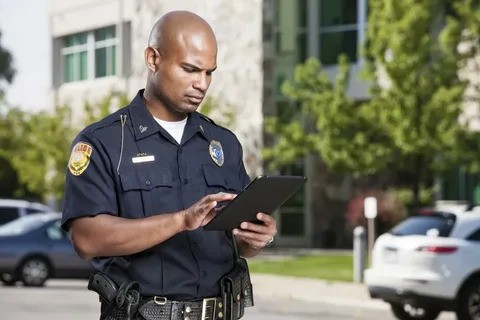Security Guard Jobs in Australia
Security guard jobs in Australia offer a stable and rewarding career path for individuals interested in protecting people, property, and assets. With the increasing need for security services across various industries, including retail, hospitality, construction, and event management, the demand for qualified security personnel is consistently high.
This blog explores how to get security guard jobs in Australia, including the qualifications and certifications required, job roles, industries that hire security professionals, and tips on how to succeed in this career.
Understanding the Role of a Security Guard
Security guards play an essential role in maintaining safety, preventing crime, and responding to emergencies. Their duties may vary depending on the industry they work in, but some of the typical responsibilities include:
- Monitoring surveillance systems (CCTV)
- Patrolling designated areas to deter crime
- Checking credentials and granting access to restricted areas
- Responding to alarms and emergencies
- Providing assistance during incidents such as evacuations
- Ensuring the safety and well-being of people within their assigned area
- Writing reports on incidents or suspicious activities
In Australia, security guards are employed in various industries, including retail, commercial properties, hospitals, airports, event venues, and construction sites. There is also increasing demand for private security personnel in residential complexes and gated communities.
Step-by-Step Guide to Becoming a Security Guard in Australia
To become a licensed security guard in Australia, there are several steps that you must follow. The process involves completing training, obtaining the necessary licenses, and meeting legal requirements.
1. Obtain a Security License
One of the first and most important steps in becoming a security guard in Australia is to obtain a security license. A security license is mandatory in all Australian states and territories, and it certifies that you have met the necessary training and legal requirements to work as a security guard.
Each state and territory in Australia has its own licensing body that regulates security guard qualifications. Below is a list of the regulatory bodies responsible for issuing security licenses in each region:
- New South Wales (NSW): Security Licensing & Enforcement Directorate (SLED)
- Victoria: Victoria Police Licensing & Regulation Division
- Queensland: Office of Fair Trading (OFT)
- Western Australia: WA Police Licensing Services
- South Australia: Consumer and Business Services (CBS)
- Tasmania: Department of Justice, Consumer Building and Occupational Services
- Australian Capital Territory (ACT): Office of Regulatory Services
- Northern Territory: Licensing NT
Before applying for a security license, you must ensure that you meet the following basic requirements, which are common across all states:
Eligibility Requirements for a Security License:
- Age: You must be at least 18 years old.
- Background Checks: You must pass a police background check (National Police Certificate) to show that you have no criminal record that would disqualify you from working in security.
- Residency: You must be an Australian citizen, permanent resident, or hold a valid work visa.
- Physical Fitness: While not always formally required, being physically fit is essential for performing some security duties, especially those involving patrolling or responding to emergencies.
2. Complete Accredited Security Training
To qualify for a security license in Australia, you need to complete a Certificate II or Certificate III in Security Operations, which is a nationally recognized qualification.
Security Operations Certificate II (CPP20218)
This entry-level qualification is typically required for most general security guard roles. It provides foundational training in the following areas:
- Workplace safety and risk management
- Monitoring and controlling access to premises
- Patrolling and guarding assigned areas
- Conducting bag and body searches
- Conflict resolution and managing difficult situations
- Report writing and documentation
Security Operations Certificate III (CPP31318)
This qualification is for those looking to advance in the security field or specialize in certain areas, such as armed security or crowd control. Certificate III includes more advanced training, including the use of firearms (if required), how to manage security dogs, or operating in high-risk environments.
These courses are offered by Registered Training Organizations (RTOs) throughout Australia, and they typically take several weeks to complete, depending on whether you study full-time or part-time.
Upon completing the required training, you will receive a Statement of Attainment, which you can then submit to the relevant licensing body as part of your security license application.
3. Choose the Type of Security License You Need
There are different classes of security licenses depending on the nature of the security work you intend to pursue. The most common types of licenses include:
- Unarmed Security Guard: This license allows you to work as a guard without carrying firearms. Most security jobs in retail, commercial properties, and residential complexes fall under this category.
- Crowd Controller (Bouncer): This license is for security personnel responsible for managing crowds at events, nightclubs, bars, or other public venues. Crowd controllers are tasked with ensuring patrons’ safety and maintaining order.
- Armed Security Guard: This license allows you to carry firearms and is usually required for high-risk security jobs, such as protecting valuable assets (e.g., cash-in-transit or jewelry transport). To obtain this license, you must complete additional training in firearm handling and safety.
- Bodyguard: Bodyguards provide personal protection to individuals, such as celebrities, politicians, or high-profile executives. This license requires specialized training in personal protection, including threat assessment, defensive tactics, and vehicle escort techniques.
- Monitoring Security Guard: These security guards work in control rooms, monitoring surveillance systems and responding to security breaches or alarms. This role often involves analyzing CCTV footage and coordinating with on-site guards or emergency services.
4. Apply for a Security License
Once you have completed the required training and received your Statement of Attainment, you can apply for your security license through the licensing authority in your state or territory.
The application process typically involves:
- Submitting your training qualifications
- Providing proof of identity (e.g., passport, driver’s license)
- Passing a police background check
- Paying the required application fee (fees vary depending on the state and type of license)
The processing time for security license applications can take a few weeks, so it’s important to submit your application well in advance if you’re applying for a job.
5. Start Applying for Jobs
Once you have obtained your security license, you can begin applying for security guard positions. Here’s how to increase your chances of securing a job in the competitive security industry:
Job Search Strategies
- Online Job Portals: Websites such as Seek, Indeed, Jora, and Gumtree often list security guard jobs. You can search for roles based on location, industry, and job type.
- Security Companies: Many security guards are employed by private security firms that provide services to various clients. Major security companies in Australia include Wilson Security, MSS Security, and G4S. You can visit their websites to check for job openings or submit your CV directly to their HR departments.
- Networking: Building connections within the security industry can open up job opportunities. Attend industry events, join security-related groups on social media, and connect with other security professionals.
- Direct Applications: Some businesses, such as shopping malls, construction sites, or event venues, hire security guards directly. Research potential employers in your area and reach out with your CV and cover letter.
Crafting an Effective CV for Security Guard Jobs
Your CV is your first impression on potential employers, so it’s important to make it stand out. Here’s what to include in your CV:
- Professional Summary: Start with a brief statement highlighting your qualifications, relevant experience, and any specialties (e.g., crowd control or monitoring).
- Security Certifications: Clearly list your security training qualifications (e.g., Certificate II or III in Security Operations), as well as any additional certifications (e.g., First Aid, CPR).
- Security License Details: Include your security license type, the issuing state, and the expiry date.
- Experience: If you have previous security experience, detail your past roles, responsibilities, and achievements. If you’re new to the industry, highlight transferable skills from other jobs, such as customer service, communication, or problem-solving.
- Skills: Showcase key skills such as attention to detail, conflict resolution, teamwork, and physical fitness.
6. Develop Additional Skills to Stand Out
While having a security license is essential, there are several additional skills and certifications that can enhance your employability:
First Aid and CPR Certification
First Aid and CPR certifications are often mandatory for security roles, particularly in workplaces where safety is a top priority. Having these qualifications shows that you are prepared to respond to medical emergencies.
Communication and Conflict Resolution
Security guards often interact with the public and need strong communication skills to handle difficult situations. Being able to de-escalate conflicts and maintain a calm demeanor is crucial, especially in roles like crowd control or customer-facing security.
Physical Fitness
Many security roles require guards to be physically fit, especially those that involve patrolling, responding to alarms, or working in high-risk environments. Regular exercise and maintaining a good level of fitness can help you perform your duties more effectively.
Technical Skills
As technology plays an increasingly important role in security, being proficient in monitoring systems, such as CCTV, alarm systems, and access control software, can give you a competitive edge. Some roles may even require you to handle advanced security technology, so upskilling in this area can be beneficial.
Career Growth and Specialization
The security industry offers plenty of room for career progression. With experience, additional certifications, and advanced training, you can move into specialized roles, including:
- Security Supervisor or Team Leader: Oversee a team of security guards and manage daily operations at larger sites.
- Security Consultant: Work with businesses to assess risks, develop security strategies, and implement security systems.
- Private Investigator: Pursue a career in private investigation, conducting surveillance, gathering evidence, and assisting in legal matters.
Security Guard Jobs in Australia
Getting a security guard job in Australia requires a combination of the right qualifications, a security license, and practical experience. By following the steps outlined in this guide—completing the necessary training, applying for a license, and actively seeking job opportunities—you can embark on a rewarding career in the security industry.
Security jobs offer diverse opportunities, from safeguarding people and property to managing complex security systems, with plenty of potential for career growth. With the right mindset, qualifications, and determination, you can secure your place in this vital and fast-growing field.



